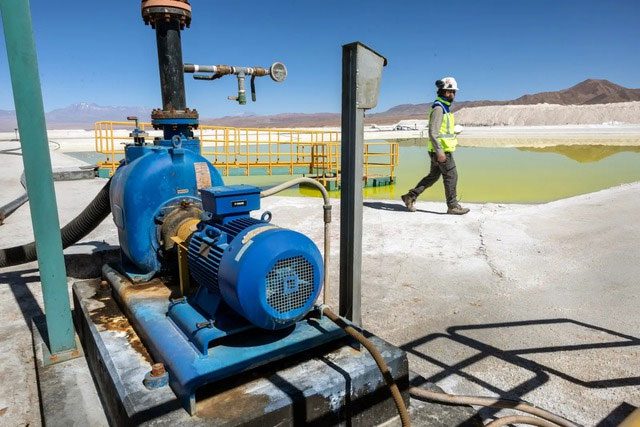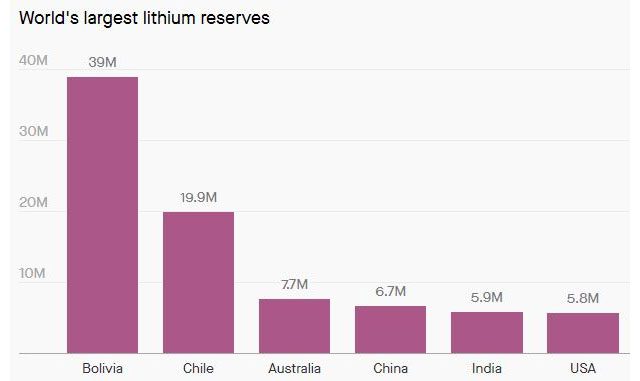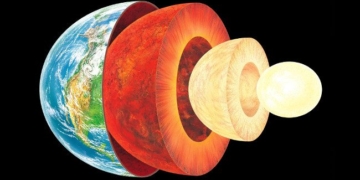This discovery immediately positions India among the top 5 countries in the world for lithium reserves.
A Gift from Nature
On Thursday, February 10, the Indian government announced the discovery of 5.9 million tons of lithium, a crucial mineral for producing electric vehicles and solar panels, in the Jammu and Kashmir regions of the country.
This is the first major lithium discovery in India. Previously, the only reserve of this metal was a small mine of just 1,600 tons found in Karnataka two years ago. Until the announcement, the country had relied on imports of lithium from Australia, Chile, and Argentina for its manufacturing sectors.

Lithium is a key material in battery and electric vehicle production.
Mining Secretary Vivek Bharadwaj stated that the new lithium mine would help India become “aatmanirbhar,” a slogan often promoted by Prime Minister Narendra Modi that translates to “self-reliant.” This discovery certainly marks a significant milestone in India’s efforts to become a global manufacturing leader. The announcement came just days after the U.S. Commerce Secretary unveiled a strategic cooperation plan between the two countries to enhance competition with China.
Simply put, the amount of lithium from this discovery means that India now holds the fifth-largest lithium reserves in the world, surpassing even the United States. However, refining lithium ore into a usable mineral for battery production is a complex process. This means India will likely remain reliant on imports for at least a few more years.
Does India Dream of Electric Vehicles?
Lithium is often referred to as “white gold” due to the increasing value of lithium batteries in producing items like phones, laptops, and electric vehicles. With the electric vehicle industry expected to reach an annual market scale of over $800 billion by 2030, the newly found ore reserves could provide a significant boon for manufacturing companies in India.

Chile currently is the largest lithium producer in the world.
This discovery may also assist the Indian government in fulfilling its recent promise to increase the number of private electric vehicles by 30% before 2030. The World Bank has indicated that mining critical minerals like cobalt, graphite, and lithium will need to increase by 500% to meet global climate goals by 2050.
However, the process of mining and refining lithium has long been criticized for its significant environmental impacts. This element is typically found in underground reservoirs, meaning that extracting it often leads to pollution and disrupts scarce water sources in rural communities. Additionally, the production process involves heating the ore at high temperatures, which can only be cost-effective when burning fossil fuels. This means that for every ton of lithium produced, 15 tons of carbon dioxide will be emitted into the atmosphere.
Which Countries Hold the Largest Lithium Reserves?

List of countries with the top lithium reserves.
The majority of the world’s lithium reserves are found in vast salt flats in Bolivia, Chile, and Argentina. To date, Bolivia remains the country with the largest lithium reserves in the world. However, most of these reserves remain underground due to the country’s inadequate infrastructure for extraction. Therefore, Bolivia does not rank highly on the list of actual lithium production.


















































